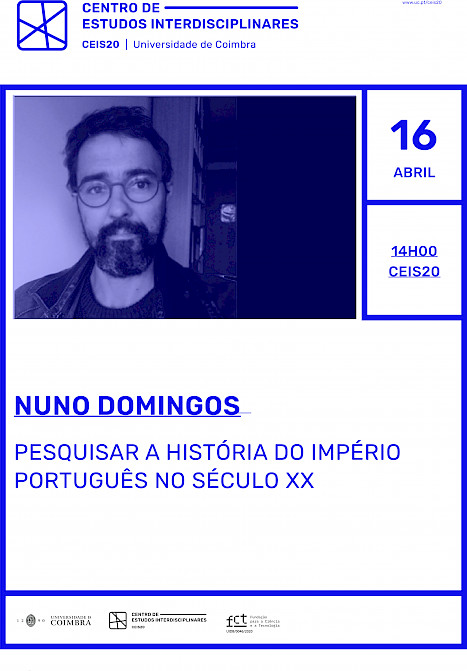Nuno Domingos is a principal investigator at the Institute of Social Sciences of the University of Lisbon. He holds a Ph.D. in Social Anthropology from the University of London (SOAS), with a thesis on Football in Colonial Lourenço Marques, Bodily Practices and Social Rituals (2009). His work focuses on the history of Portuguese colonialism, in particular in Mozambique during the Estado Novo. In his Ph.D. he carried out an urban historical anthropology of the city of Maputo, studying the dissemination of modern popular culture based on sports practices and consumption. He recently coordinated the volume Cultura Popular e Império (Lisboa: Imprensa de Ciências Sociais, 2021) and, together with Elsa Peralta, Legacies of the Portuguese Colonial Empire (Londres: Bloomsbury, 2023).

This presentation aims to reflect on the benefits of transdisciplinary approaches and multiple methodologies in the production of research on the history of the Portuguese Empire. I will approach this question from my experience of researching the history of colonial Mozambique in the 20th century, particularly the development of its urban condition. I would argue that disciplinary openness and the use of multiple methods are essential to avoid a number of limitations inherent in research proposals that pursue pre-constructed models and relatively closed models that serve to reinforce disciplinary legitimacy rather than strategies for deepening knowledge. Thus, strict disciplinary allegiances and respect for methodological purity end up shaping the process of problematising, hypothesising and formulating objectives that inevitably shape research conclusions.

